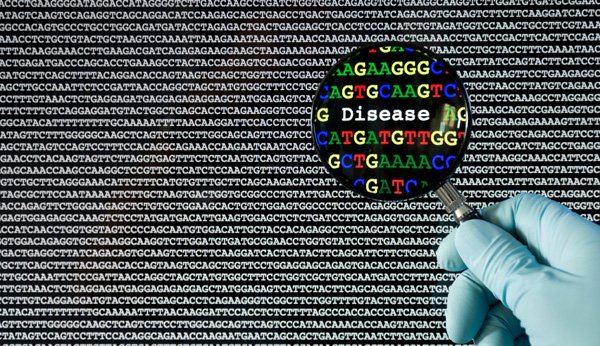- Home
- Medical news & Guidelines
- Anesthesiology
- Cardiology and CTVS
- Critical Care
- Dentistry
- Dermatology
- Diabetes and Endocrinology
- ENT
- Gastroenterology
- Medicine
- Nephrology
- Neurology
- Obstretics-Gynaecology
- Oncology
- Ophthalmology
- Orthopaedics
- Pediatrics-Neonatology
- Psychiatry
- Pulmonology
- Radiology
- Surgery
- Urology
- Laboratory Medicine
- Diet
- Nursing
- Paramedical
- Physiotherapy
- Health news
- Fact Check
- Bone Health Fact Check
- Brain Health Fact Check
- Cancer Related Fact Check
- Child Care Fact Check
- Dental and oral health fact check
- Diabetes and metabolic health fact check
- Diet and Nutrition Fact Check
- Eye and ENT Care Fact Check
- Fitness fact check
- Gut health fact check
- Heart health fact check
- Kidney health fact check
- Medical education fact check
- Men's health fact check
- Respiratory fact check
- Skin and hair care fact check
- Vaccine and Immunization fact check
- Women's health fact check
- AYUSH
- State News
- Andaman and Nicobar Islands
- Andhra Pradesh
- Arunachal Pradesh
- Assam
- Bihar
- Chandigarh
- Chattisgarh
- Dadra and Nagar Haveli
- Daman and Diu
- Delhi
- Goa
- Gujarat
- Haryana
- Himachal Pradesh
- Jammu & Kashmir
- Jharkhand
- Karnataka
- Kerala
- Ladakh
- Lakshadweep
- Madhya Pradesh
- Maharashtra
- Manipur
- Meghalaya
- Mizoram
- Nagaland
- Odisha
- Puducherry
- Punjab
- Rajasthan
- Sikkim
- Tamil Nadu
- Telangana
- Tripura
- Uttar Pradesh
- Uttrakhand
- West Bengal
- Medical Education
- Industry
Nano DNA machine to cut HIV diagnostics cost

A new nanometer DNA machine has been identified by the researchers to help in easy diagnosis of HIV and other diseases like the rheumatoid arthritis. The small Machine helps in the process of identifying the antibodies that can further help in the diagnosis of infectious and autoimmune diseases.
It also promises a rapid, low cost detection of antibodies, this reducing precious time lost in the initial treatment at the centres. Besides, the device has a deeper application for diagnosing at the point-of- care, and can be used for bio imaging as well.
One of the advantages of our approach is that it is highly versatile," said senior co-author of the study Francesco Ricci from University of Rome Tor Vergata in Italy.
"This DNA nanomachine can be in fact custom-modified so that it can detect a huge range of antibodies, this makes our platform adaptable for many different diseases," Ricci said.
The binding of the antibody to the DNA machine causes a structural change (or switch), which generates a light signal.
The sensor does not need to be chemically activated and is rapid - acting within five minutes - enabling the targeted antibodies to be easily detected, even in complex clinical samples such as blood serum.
"Our modular platform provides significant advantages over existing methods for the detection of antibodies," professor Alexis Vallee-Belisle from University of Montreal in Canada noted.
"It is rapid, does not require reagent chemicals, and may prove to be useful in a range of different applications such as point-of-care diagnostics and bioimaging," Vallee-Belisle said.
"Another nice feature of our this platform is its low-cost," professor Kevin Plaxco of the University of California, Santa Barbara, US, pointed out.
"The materials needed for one assay cost about 15 cents, making our approach very competitive in comparison with other quantitative approaches," Plaxco said.
The findings were detailed in the journal Angewandte Chemie.
It also promises a rapid, low cost detection of antibodies, this reducing precious time lost in the initial treatment at the centres. Besides, the device has a deeper application for diagnosing at the point-of- care, and can be used for bio imaging as well.
One of the advantages of our approach is that it is highly versatile," said senior co-author of the study Francesco Ricci from University of Rome Tor Vergata in Italy.
"This DNA nanomachine can be in fact custom-modified so that it can detect a huge range of antibodies, this makes our platform adaptable for many different diseases," Ricci said.
The binding of the antibody to the DNA machine causes a structural change (or switch), which generates a light signal.
The sensor does not need to be chemically activated and is rapid - acting within five minutes - enabling the targeted antibodies to be easily detected, even in complex clinical samples such as blood serum.
"Our modular platform provides significant advantages over existing methods for the detection of antibodies," professor Alexis Vallee-Belisle from University of Montreal in Canada noted.
"It is rapid, does not require reagent chemicals, and may prove to be useful in a range of different applications such as point-of-care diagnostics and bioimaging," Vallee-Belisle said.
"Another nice feature of our this platform is its low-cost," professor Kevin Plaxco of the University of California, Santa Barbara, US, pointed out.
"The materials needed for one assay cost about 15 cents, making our approach very competitive in comparison with other quantitative approaches," Plaxco said.
The findings were detailed in the journal Angewandte Chemie.
Next Story


